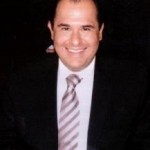Scientific program and working meetings
Download here the full Program
Read more about the Congress reports
TUESDAY 17 SEPTEMBER 2013
9.00-17.30 PRE-CONGRESS SEMINAR : Do’s and Don’ts when doing business in Latin America
Commission: International Business Law Commission
Download here the flyer and registration form
Imagine doing business in the once again New World, a diverse land of new markets, new opportunities and for some, of new beginnings. Let us guide you through the process of understanding the Latin American Market, envisioning the main aspects of the legal regime, the business environment and investment opportunities. Latin America has diverse cultures, vast geography, important natural resources and a more stable political environment with economies booming, making it a land of multiple openings. In addition, these legal regimes are more and more open to foreign investments, with many areas to privatize and the expertise that local, foreign and multinational organizations can provide has great prospects. Let’s experience the entrance to this new market together by exploring the cases we have prepared for you!
ORGANISING COMMITTEE: Renata Antiquera, Birgit Beyerlein, Frank Boyle, Gretel Ciniglio, Justus Jansen, Joe Raeber
WEDNESDAY 18 SEPTEMBER 2013
8.00-9.00 Executive Committee Meeting
9.00-12.00 WORKING SESSIONS (1 – 2 – 3)
1. BID-RIGGING, CORRUPTION AND ANTITRUST – Are you sure your company is not involved?
Commissions: Antitrust – Commercial Fraud
General Reporters: Leopoldo Pagotto, Jasvinder Nakhwal
As the global economic climate intensifies, and international regulatory regimes tighten, potential liability for breaches of anti-corruption and anti-trust regulation, on the part of individuals and corporate entities, has never been greater. Public bids and tenders, is one area of commercial activity in which the risk of falling foul of such regulation is particularly high. The fight against corruption is high on the agenda of most democratic jurisdictions, and often, corrupt activity goes hand-in-hand with anti-competitive conduct. Taken together, this is a real and growing issue for global law enforcement and defence. The first part of the working session will analyze how commercial activity, including public bids are regulated in different jurisdictions, in the dual context of antitrust and anti-corruption, and will focus on the international implications of this. The second part of the session will consider real-life cases in different jurisdictions, including Latin America, to demonstrate and discuss how certain practical issues inter-play with domestic and international regulatory regimes of which any practitioner should be aware when acting for their client.
2. DIGGING FOR ENERGY – Unconventional energy resources underground
Commission: Environmental and Energy Law
General Reporter: Eoin Cassidy
The world below the earth crust belongs no longer exclusively to oil or gas drillers – for quite some time now, it has become an important playground for gold diggers looking for alternative and unconventional energy solutions. The working session will focus on these unconventional energy extraction methods such as hydraulic fracturing (“fracking”), geothermal drilling and oil sands. We will discuss with technical and legal experts mainly coming from Middle and South America the legal background and especially the challenges and business opportunities of such digging projects.
3. LATIN AMERICA IN GLOBAL M&A TRANSACTIONS – A mouse that roars?
Commission: Corporate Acquisition and Joint Ventures (M&A)
General Reporters: Dr. Martin Imhof, Dr. Michael Lind
Are Latin American M&A transactions different from those in the rest of the world? What are the specifics of Latin American transactions and how to deal with them? Which pitfalls should American, European and Asian lawyers on the one hand and Latin American lawyers on the other hand avoid? This working session shall give an introduction to the Latin American M&A Market from a commercial and legal perspective. Experienced professionals will describe the macro trends and forces driving M&A activity in- and outbound of Latin America. Lawyers from different jurisdictions will discuss the Latin American trends and specifics and how to best deal with them in their jurisdiction. Finally, the audience will be split up in several groups. The participants will have the possibility to share and compare their experiences in dealing with Latin American related transactions. In the course of negotiating and analyzing a mock case, solutions satisfying both, the European/North American and the Latin American approach, should be found.
12.00-13.00 COMMISSIONS MEETINGS
Antitrust
Commercial Fraud
Environmental and Energy Law
Corporate Acquisition and Joint Ventures
13.00-14.30 LUNCH FOR DELEGATES
13.00-14.30 FIRST TIMER’S LUNCH
If this is your first visit to the AIJA Congress, this makes you a first timer, even if you have participated in AIJA seminars or conferences previously. The purpose of the first timers’ lunch is twofold: (i) to explain AIJA from the inside and provide some useful tips on how to best get progressively involved in the life of the association, and (ii) to give first timers the opportunity to take an interest in the activities of the scientific commissions by directly engaging with their leaders. First timers and new members are most welcome to attend commission meetings (in charge of the organization of the scientific work) and committee meetings (in charge of the management of the association), in addition to the working sessions and workshops taking place during the congress.
14.30-16.00 WORKSHOPS (A – B)
A.FOOTBALL – Funding and re-structuring clubs in today’s markets
Commission: International Business Law (IBC) / Sports Law Sub-Commission
General Reporter: Tilo Pachmann
Only a year ahead of the biggest sports event ever held in South America, namely the FIFA World Cup 2014 in Brazil, the funding and re-structuring of football clubs in today’s market will be discussed in this working session. Starting with a practical example from a famous Argentinean Football Club the advantages and disadvantages of the « American » single entity system are compared with the « European » system of financing football clubs. Thereafter, the new UEFA Regulations on Financial Fair Play and options to establish a more sustainable way to finance football clubs are being discussed.
B. EMERGING MARKETS – Real estate financial solutions
Commission: Real Estate Law
General Reporters: Tatiana Erhardt, Carolijn Kuipers
Relevant transactions in connection to real estate projects have been taking place in upcoming markets, such as Latin America. This workshop will focus on the legal framework applied to real estate financing structures available in such regions, related to capital markets, corporate/private funds and banking regulations. Amongst others, the following topics will be covered: • Advantages from the real estate/infrastructure companies’ perspective – easy and cheap financing structures;
• advantages from the investors’ perspective – notable interest rates return, plus solid collateral; and
• examples of successful transactions, describing capital markets’, private funds’ and banking structures used in said cases.
14.30-16.00 ABA/SIL SESSION
Contract Drafting: Corporate Lawyers v. Litigators
Every transaction involves intense drafting and compromise by the corporate lawyers trying get the deal done, and then when things go bad, the litigators have to argue what the contract words mean. So-called “boilerplate” clauses do not always work for every deal, but many times they are used because they “worked” in the last deal. When those clauses are before a court or arbitral panel, the litigator has to explain, justify, defend or twist the language – which might have been avoided if the litigator had drafted it. On the other hand, the corporate lawyer does not want an overly long document that might scare the client or even kill the deal. This interactive program will explore these conflicts by looking at a few common clauses and how both the corporate and litigation lawyers address them, and the tension between their respective goals – always with the client’s best interest at heart. Chairmen: Steven Richman, Duane Morris (USA) and Marcela B. Stras Cozen O’Connor, Washington DC
Moderator: Marcelo Bombau, M. & M. Bomchil Abogados, Buenos Aires
16.00-17.00 COMMISSION MEETINGS
Real Estate Law
Skills, Career, Innovation, Leadership and Learning (SCILL)
17.30-18.30 VOICE OF THE PROFESSION
Venue: Faculty of Law
AIJA Congresses do not only feature an outstanding scientific and social program. The Voice of the Profession (VOP) Session, taking place right before the Opening Ceremony, will also this year attract many VIP’s and interested young lawyers wanting to know more about the development of their profession in the 21st century.
Transport: Buses will leave the Hilton Hotel at 5 pm.
THURSDAY 19 SEPTEMBER 2013
8.00-09.00 MEETING OF THE HUMAN AND PROCEDURAL RIGHTS AND RESPONSIBILITIES COMMITTEE
8.00-09.00 STRATEGY FORUM
9.00 – 12.00 WORKING SESSIONS (4 – 5 – 6)
4. THE EFFECTIVENESS OF THE AWARD – Recognition and enforcement of judicial and arbitral decisions Commissions: International Arbitration – Litigation – Transport Law
General Reporters: Martin Molina, Daan Folgering, Javier Zabala
Once a favourable judgment (award) has been obtained, the battle for its enforcement may begin. In this working session we will examine the options available to parties seeking the recognition and enforcement of foreign judgments and arbitral awards and the substantial hurdles that may need to be overcome in the process. In this context, we will especially address issues of enforcement against state entities and possible remedies for denial of justice in domestic enforcement proceedings. Finally, we will focus on a particular document of title: the bill of lading, and the rights and defences afforded to the lawful holder of same. Presentations on these topics will be followed by the discussion of a mock case, inspired by the saga of the so-called “vulture funds” seeking to enforce claims under Argentine state bonds in multiple jurisdictions around the world.
5. DESPERATELY SEEKING GROWTH!
Commission: Labour Law
General Reporter: Emiliano Ganzarolli
Will employment/labour law reform programmes assist clients in their search for business and economic growth? Or is the answer to expand into growing economies in Latin America and elsewhere? In this two part working session we will examine: • current employment/labour law reform programmes intended to assist business growth in developed countries facing flat or negative economic growth, e.g. Italy, France, Spain, UK, etc.
• Labour market regulatory regimes in faster growing economies, e.g. Brazil, Argentina, Russia, India, China etc.
We will compare approaches to regulating employment and the labour market, with a panel of legal experts from Latin America, the “BRICS” etc., examining a case study about inward investment, acquisitions and joint ventures in their fast growing economies: what are the key local employment/labour law issues that clients and their lawyers need to understand?
6. WHAT’S IN A NAME – Champagne, Café de Colombia, Ceylon Tea, Pisco (de Chile o de Perú)… all different products, but similar issues
Commission: Intellectual Property, Technology, Media, and Telecommunications ( IP/TMT)
General Reporters: Jean-Philippe Arroyo, Cristobal Porzio
“Geographical indicators”, “appellations of origin”, “controlled denominations”, “certified indications” are all expressions commonly read in the newspapers and seen every-day by consumers in relation to common items (such as “Parma ham”, “Champagne”, “Café de Colombia”), but they are often misunderstood. In spite of this, they present a magnificent legal tool to improve the value of products, and to increase their price, in local as well as in international markets. They also protect products, as those which are not from a particular location or satisfy specific criteria are barred from using them.
This working session will explore the general legal framework of geographical indicators and of signs protecting the origin and/or the quality of products, the practical application of the rules, the differences between legal systems in various regions of the world, as well as the overlap with trademark law. Last but not least, the working session will include a “practical” experience of some geographical indicators for the participants.
12.00-13.00 COMMISSION MEETINGS
Litigation
Transport Law
Labour Law
Intellectual Property, Technology, Media, and Telecommunications
13.00-14.30 LUNCH
14.30-16.00 WORKSHOPS (C – D – E)
C. PRACTICAL ISSUES RELATING TO COMPLIANCE WITH FATCA
Commission: Tax Law
General Reporter: Michael Parets
The workshop will be outlining the application and the scope of FACTA in practice and considering and identifying common issues that may arise for a variety of clients. The workshop will both address US domestic consequences and the effect on individuals and corporates in other jurisdictions as well as the bilateral agreements on FATCA compliance.
D. ROADMAP TO OFFICERS AND DIRECTORS VISAS IN LATIN AMERICAN COUNTRIES
Commission: International Business Law (IBLC) / Immigration Law Sub-Commission
General Reporter: Alexandre Pirotte
The IBLC / Immigration Sub-Commission will present a workshop with a roadmap for investors to obtain the visa for their expatriate Officers and Directors to work in various Latin American jurisdictions. We shall discuss the legal requirements for visa applications, the best contractual structure for hiring the Officers and Directors, and consequences of visa issuance (such as tax obligations of the expatriate, family members, possibility of cumulating jobs and functions, etc.). We will also touch the company’s obligations once the visa is cancelled.
E. FROM PUBLIC TO PRIVATE – The path to privatization
Commissions: Banking, Finance and Capital Markets Law
General Reporter: Gerard Correig
With public finances in Europe shattered by the financial crisis and savage cuts in central government funding, municipal and regional authorities are desperate for cash – the path to privatization is a “hot topic” these days. Governments are choosing to sell off their “crown jewels” to reduce public debt. In addition many South American countries that run a nationalization process in recent years are now choosing to bring those assets back into private hands (i.e. Argentina with YPF, and others). This session will analyse the legal obstacles and challenges faced by the privatisation of a nationalised or publicly owned asset. We will discuss issues such as the mechanism to retain a partial public stake (i.e. golden share), the transparency of the privatisation process, the different paths for the privatizations (IPO vs. beauty contest) and the impact on regulated sectors.
16.00-17.00 COMMISSION MEETINGS
Banking, Finance and Capital Markets Law
International Arbitration
Tax Law
International Business Law (IBLC)
17.00-18.00 FORUM OF THE COMMISSIONS
18.00-19.00 FINANCE FORUM
FRIDAY 20 SEPTEMBER 2013
8.00-09.00 MEMBERSHIP FORUM
9.00 – 12.00 WORKING SESSIONS (7 – 8 – 9)
7. THE LAWYER AS ENTREPRENEUR?! – The challenges of new business models in an ever changing legal environment
Commissions: Corporate Counsel – Skills, Career, Innovation, Leadership and Learning (SCILL)
General Reporters: Sergio Calderara, Janneke Bakker
With this working session, the SCILL and Corporate Counsel commissions want to investigate whether lawyers can be successful entrepreneurs. We will look at the topic from various perspectives, including that of sole practitioner, multi partner law firm, and in-house counsel. The working session will look what entrepreneurial skills a lawyer needs to develop. The session will address, among other issues, the following: vision vs. politics/compliance; fees vs. cost cuts; how to acquire clients and keep them (happy); internal and external competition. The session will also focus on how to achieve a progressive career development, both as an in-house and private practice or making the jump to set up your own law firm either alone or with other like minded lawyers.
8. DISTRIBUTION IN A TIME OF CRISIS – When distribution meets insolvency. Have we learned the lessons?
Commissions: Distribution Law – Insolvency Law
General Reporter: Arnaud Péricard, Benjamin Leventhal, Giuseppe Scotti
With this working session, the SCILL and Corporate Counsel commissions want to investigate whether lawyers can be successful entrepreneurs. We will look at the topic from various perspectives, including that of sole practitioner, multi partner law firm, and in-house counsel. The working session will look what entrepreneurial skills a lawyer needs to develop. The session will address, among other issues, the following: vision vs. politics/compliance; fees vs. cost cuts; how to acquire clients and keep them (happy); internal and external competition. The session will also focus on how to achieve a progressive career development, both as an in-house and private practice or making the jump to set up your own law firm either alone or with other like minded lawyers.
9. THE MODERN FAMILY – Civil status and financial issues
Commission: Private Clients (PCC)
General Reporters: William Healing, Ferenc Ballegeer
This working session is well-timed since laws are fast-changing in this area – see for example recent change in the United States or France. On the basis of a number of National Reporters’ contributions from civil and common law jurisdictions, Northern and Southern hemisphere, this workshop will look at the civil status of same-sex, and unmarried relationships and the treatment of property ownership and rights on separation. There will be analysis of taxation issues – income and inheritance tax, and also taxation on separation. The working session will also examine financial support for children with parents from unmarried relationships, as well as on the status of step-children. Finally, the working session will analyse both the status of children born into same-sex relationships and the rights of excluded natural parents.
12.00-13.00 COMMISSION MEETINGS
CorporateCounsel
Distribution Law
Insolvency Law
Private Clients (PCC)
13.00-14.30 LAW COURSE COMMITTEE MEETING
SATURDAY 21 SEPTEMBER 2013
9.00-10.00 Registration for General Assembly
10.00-13.00 GENERAL ASSEMBLY
14.30-16.00 EXECUTIVE COMMITTEE MEETING
WORK COORDINATORS
 |
 |
 |
| Mark Oliver KühnGermany | Ricardo ChacónMexico |
Jonathan Tickner UK |



